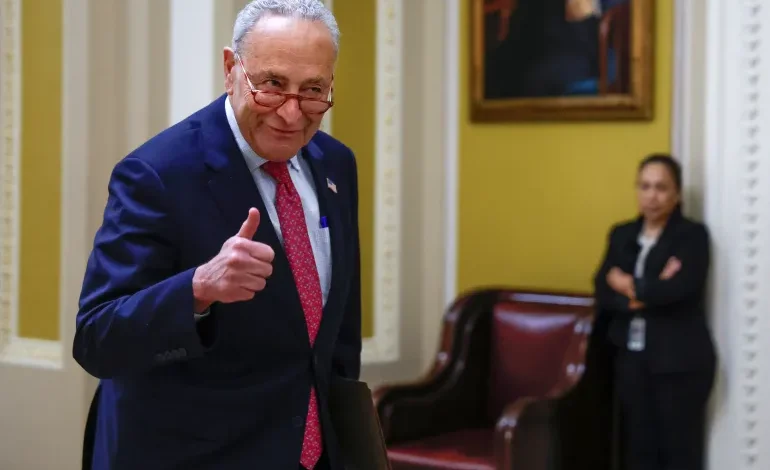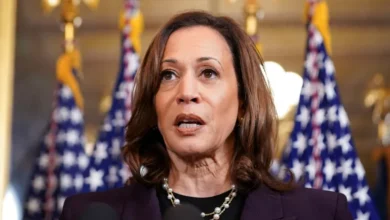Deal to raise debt ceiling passes US Senate, heads to Biden

The United States Senate has voted to approve a bipartisan deal that would increase the country’s debt ceiling, clearing the bill’s last major hurdle before it reaches the desk of President Joe Biden.
With Biden expected to sign the newly passed bill, Thursday’s decision is set to avert economic catastrophe, with only days remaining before the US was due to default on its debt on June 5.Senators voted 63 to 36 in favour of the legislation, which was thrashed out in often late-night negotiations between teams representing the Democratic Biden and Republican House Speaker Kevin McCarthy – two figures often at odds – last weekend.
It was passed by the House of Representatives on Wednesday.
“We are avoiding default tonight,” Senate Majority Leader Chuck Schumer said on Thursday as he steered the legislation through the 100-member chamber where the Democrats have a razor-thin majority.
Biden welcomed the bill’s approval as a “big win for our economy and the American people”. He said he would make an additional statement on Friday at 7pm (23:00 GMT).
Senate leaders push support for deal
In the lead-up to Thursday’s vote, Schumer and Minority Leader Mitch McConnell rallied support from their respective parties to back the deal, which would suspend the federal borrowing limit until January 2025.
However, speaking to his Senate colleagues on Thursday, Schumer promised that the Senate would stay in session until a bill was passed, emphasising that the default date was a mere four days away.
“We will keep working until the job is done. Time is a luxury the Senate does not have if we want to prevent default,” Schumer said. He also blasted calls for changes to the deal’s language.
“At this point, any needless delay or any last-minute hold-ups would be an unnecessary and even dangerous risk. And any change to this bill that forces us to send it back to the House would be entirely unacceptable. It would almost guarantee default.”
In the event, the decision on the deal was preceded by a series of rapid-fire votes – limited to 10 minutes apiece – on the numerous amendments that had been raised, with a minimum of 60 votes needed for each of the amendments to pass.
Throughout the proceedings Schumer acted to move things along, reminding the Senators of what was at stake.
Concessions a selling point for Republicans
Meanwhile, McConnell, Schumer’s Republican counterpart, played up the conservative bona fides of the bill for a party starkly divided over its merits.
“The Fiscal Responsibility Act avoids the catastrophic consequences of a default on our nation’s debt. And just as importantly, it makes the most serious headway in years toward curbing Washington Democrats’ reckless spending addiction,” McConnell told the Senate.
On Tuesday, the Congressional Budget Office estimated that the federal government’s budget deficit could be reduced by $1.5 trillion through 2033 under the terms of the debt-ceiling deal.That reduction would come primarily through the deal’s caps on non-military discretionary spending, which would be kept flat in 2024 and increased by only one percent in 2025. The bill would also claw back unused COVID relief money and funds previously awarded to the Internal Revenue Service (IRS), the government’s tax-collecting body.
The deal would also force the government to resume collecting payments from federal student loans, something that had been suspended during the COVID pandemic.










